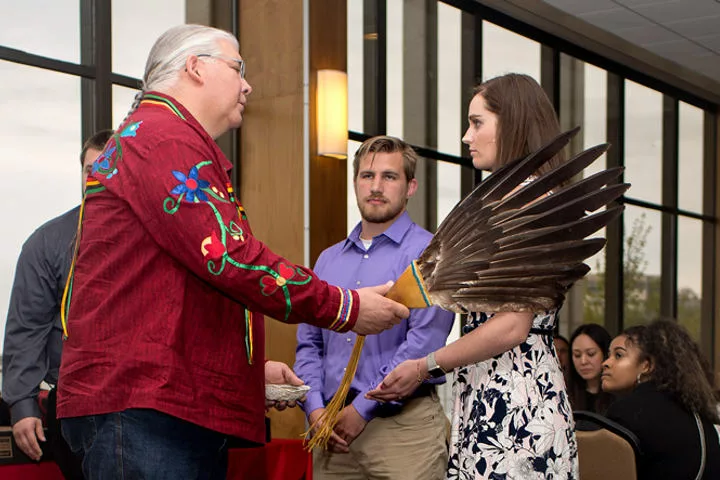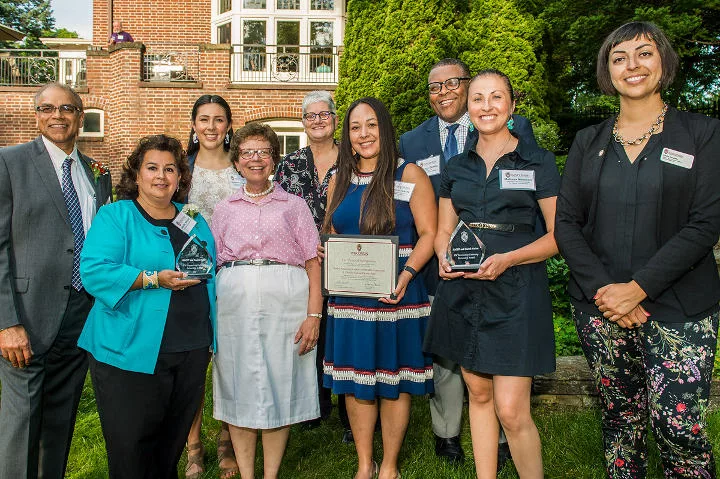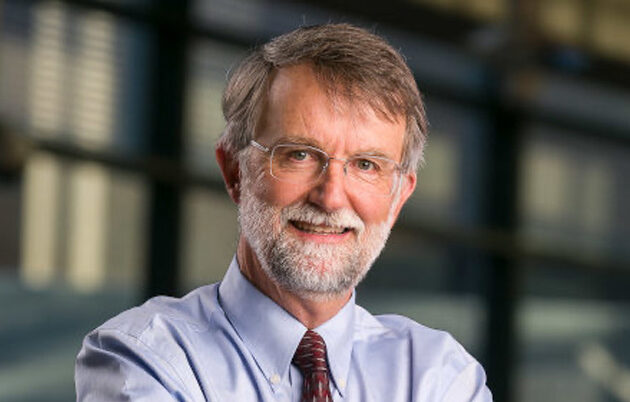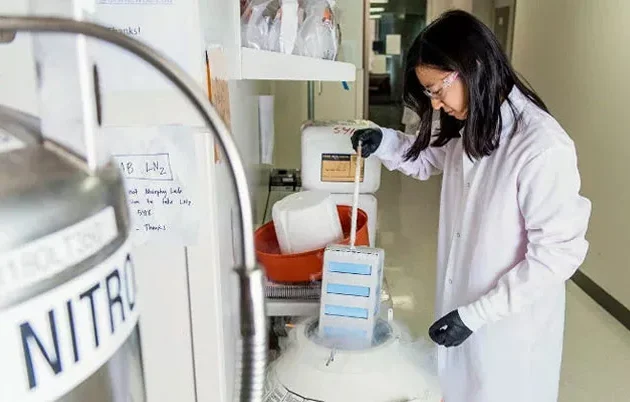Yancey’s appointment as the center’s first full-time director in 2017 was a sign of NACHP’s growth. Raised on the Menominee Reservation near Green Bay, Wisconsin, and with experience working with tribal communities throughout the state in previous roles, she hit the ground running. In her first year as the director, on behalf of NACHP, Yancey was on the Madison Magazine “M List for Health Innovation.” That same year, she helped launch the NACHP Distinguished Lecture Series, as part of the INMED grant, which hosts Native American health professionals for presentations in Madison and in tribal communities. In December 2018, for example, the series featured Blythe Winchester, MD, a geriatrician who practices at Cherokee Indian Hospital in North Carolina. Her presentation, “Navigating the Health of Our Elders,” was held in two parts, with the first at the SMPH and the second in the Oneida tribal community in northern Wisconsin.
Yancey also coordinated NACHP’s highly anticipated move to a new location — shared with the Office of Multicultural Affairs — on the first floor of the Health Sciences Learning Center (HSLC). The choice new space, which is part of several enhancements to the HSLC completed in early 2018, “offers greater prominence and accessibility for students and visitors,” she says.
NACHP’s success is a testament to the efforts of the entire team, as well as past leaders who helped shape the mission and vision; they include Erik Brodt, MD, founding former director, Jacquelynn Arbuckle, MD ’95, former director, and Christine Athmann, MD, former assistant director. Today’s NACHP team, in addition to Yancey, includes Lauren Cornelius, Lina Martin and Melissa Metoxen. Cornelius is a program specialist who assists with the implementation of INMED grant activities, student recruitment and advising. A UW–Madison graduate, she is an enrolled member of the Oneida Nation. Martin, a program coordinator, works with pre-college and undergraduate pre-health students in partnership with UW–Madison’s Division of Diversity, Equity and Educational Achievement. Also a UW–Madison alumna, she is a member of the Ho-Chunk Nation and a descendent of the Stockbridge-Munsee community. And Metoxen — who has been with NACHP since its inception — is the community and academic support coordinator. An Oneida tribal member, Metoxen is based primarily at an in-kind NACHP office in the Oneida Community Health Center, and the proximity helps her maintain relationships with tribal communities and coordinate tribal clinic rotations and a variety of cultural experiences for Native American medical students. In October 2018, she was honored with the UW–Madison Outstanding Women of Color Award for her multifaceted work with NACHP.
Third-year medical student Jennifer Meylor, who hails from Northern California, cites NACHP as a significant factor in her decision to attend the SMPH. She learned about the center through an article about recruiting Native American students.
“I saw that in this program, Native American students were supported and thriving, and I wanted to get involved,” she says. “In my first year, NACHP hosted family dinners where I was able to meet other Native American students and start to form a community. I’ve been very close with these students and relied on them many times.”
NACHP has funded Meylor’s attendance at the annual AAIP conference to meet Native American physicians from around the country, and at conferences of a national student organization, Association of Native American Medical Students (ANAMS), for which she serves on its board.
“NACHP faculty have gone out of their way to support my involvement in this organization. In fact, this year NACHP has five students who are elected board members of ANAMS,” notes Meylor.
“Networking and mentorships with other Native physicians are so valuable,” adds Metoxen. “They help support students while they’re in medical school and help them obtain residencies where there are Native providers.”




